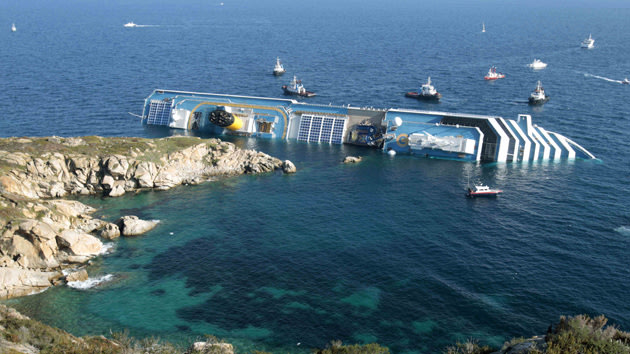
So as it turns out that navigation stuff is quite useful.
Johnathan Walpole, a BCU coach from Oregon, posted something quite interesting in the mile-long thread on the Netart’s Bay incident from Lumpy Water that really got me thinking.
Whenever there is a symposium, or any skills training event, students flock in droves to classes like surfing, or directional control. They sound sexy, they sound like something you could use. And that poor lonely coach who gets stuck coaching tides, or navigation has two students, who were probably tired that morning and wanted a land-based class to “take it easy”.
I don’t think anyone is saying that the hard skills classes that get so much focus are not important. But based on the photo above, and this BBC Story on the wreck of a cruise ship, might hint at the importance of knowing exactly where you are at sea.
The danger of being in shoals in a sea kayak is negligible. The aha moment I had when reading this article is that a Captain of a vessel who is responsible for the lives of potentially hundreds of people, didn’t know exactly where he was. And this Captain most likely had every sort of techno GPS gadget known to man or monkey available to him.
Now lest we condemn the Captain of this cruise ship prematurely, everyone makes mistakes. But the crux of the issue is again. Greater Duty of Care. If we are responsible for the lives of others, shouldn’t we know better?
- Take a Navigation Course.
- Get a deck mounted compass
- Get a hand compass
- Get a dorky grease pencil, or a waterproof notebook
- Get some charts of your local paddling waters
- Practice doing some dead reckoning with a watch and your chart each time you go out
- When you travel somewhere new, get charts. Familiarize yourself with the navigational markers, landmarks, and practice dead reckoning.
- Practice taking ranges at sea.
- Know the tidal range and type of your local area. Diurnal, semidiurnal. Know the strength of the tidal current, the rule of thirds, the rule of twelfths, and the time of the low tides, and the high tides. This link from NOAA on Tides is a good place to start
- Know how to account for tidal streams when planning journeys.
- Understand how land forms, and other geographic formations, (headlands, rivers, islands) affect tidal stream.
- Read this book, on Navigation by Franco Ferrara.
- Last Resort, buy a GPS, but at least know how to use it.
There is a ton to learn about navigation and tides. And I would say that even for us unsalted folks, having a working knowledge, if not intimate knowledge of tides is only going to help you when you get your day out on the wide blue sea.